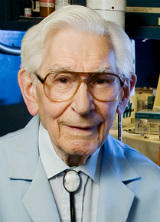Eggs are Good for You

Eggs are the most nutritious and the least expensive protein source in the supermarket. Remember, eggs are a “complete” protein, that is, they contain all the amino acids your body needs each day.
One egg provides 68 calories and about 11% of your daily protein requirement. Eggs contain a variety of important nutrients including almost every vitamin, mineral and natural antioxidant that your body requires.
Studies at many major universities in the U.S. and abroad attest to the egg as an excellent source of protein. Many in the forefront of anti-aging research believe that moderate egg consumption of one per day should be an integral part of a complete anti-aging diet.
Because eggs are high in natural cholesterol (210-220 mg of cholesterol per egg), there has been a concern that eating an egg would raise one’s cholesterol level to unhealthy levels. Restricting egg consumption became a key component in many health-related diets; this is actually a misguided recommendation since this has not been shown to be the case. Eating an egg raises the total cholesterol score only 2-3 mg/dl on well balanced diets.
In healthy young men and women, even two eggs a day had little effect on total cholesterol levels. In a recent study, elderly subjects (more than 60 years old) were assigned to one of two dietary groups: one group ate three eggs per day and the other ate the same amount in egg substitutes for a one-month period.
The result of this study was a significant increase in both LDL and HDL cholesterol for those who ate eggs, but the ratio between the two was not affected significantly. In other words, if the LDL went up, the HDL did too, thus counteracting the effect of the higher LDL. The study concluded that dietary cholesterol provided by eggs does not increase the risk for heart disease in an elderly population.
There have been a number of studies conducted looking at egg consumption and health risks. One at Harvard University included an eight- to fourteen-year follow-up study of approximately 38,000 men and 80,000 women. There was no statistically significant difference in risk for heart attacks and strokes among people who ate eggs less than once a week compared with those who ate more than one egg a day. Other studies in a variety of settings found no evidence that eating up to an egg per day led to heart attacks or strokes.
The Framingham study has investigated the effect of environmental factors and what people ate on the development of coronary heart disease since 1949. No relationship between egg intake and coronary heart disease incidence was found. Recently, evidence has been accumulating to suggest that eating foods containing cholesterol is less relevant to cardiovascular risk than eating foods containing fat.
For example, people who ate either oats or eggs daily for six weeks ended up with similar cholesterol levels and similar weights. Hospitalized patients eating eggs and tested at intervals of five hours to 54 days found no significant differences in cholesterol levels. In a diet that contains at least 25 grams of fiber, only a few milligrams of cholesterol in an egg were absorbed from the intestinal tract.
So how did eggs end up being so maligned? In 1975, the U.S. Federal Trade Commission (FTC) held hearings on eggs after egg producers had advertised that eggs do not cause heart attacks. Only two witnesses testified in favor of the egg; I was one. The other was Dr. Michael DeBakey; apparently because he was a (famous heart) surgeon, not a cardiologist, he also did not hold sway.
All the other witnesses testified that eggs contained cholesterol, and cholesterol causes heart disease, therefore do not eat eggs. The anti-egg scientists who testified based their testimony on two significant experiments.
One involved feeding of cholesterol containing food, including eggs, to rabbits. The rabbits did indeed have much higher cholesterol levels in their blood and they developed atherosclerosis. What wasn’t said was that rabbits do not ever eat cholesterol as part of their normal diet. We would expect rabbits to not do well with such a diet, and indeed that was the case.
The second major experiment was done by feeding egg yolks (not whole eggs) to Indians in Northern Mexico. Their cholesterol levels went up 40 points. What should have been done was feeding whole eggs instead of just the yolk because the body needs the extra protein in the egg white to help metabolize the cholesterol. (Part of the moral here is to eat both the yolk and the white of the egg.)
The studies at that time on the pro-egg side were not compelling enough to counteract these two flawed experiments. The flaws in these studies were never brought to light, and probably were even unknown to the researchers at the time. We now know that humans have a defense system of enzymes that metabolize dietary sources of cholesterol and have a means of controlling the amount of cholesterol synthesized by the liver.
Most experimental feeding studies have used an excess of dietary cholesterol that overwhelmed the defense system and led to false conclusions. Egg producers lost and could no longer advertise eggs by saying they did not cause heart attacks.
This actually led to a greater loss for the American population who were discouraged from eating an excellent and inexpensive food item that could help counteract the high intake of fat and sugar in the American diet, which had been steadily increasing since 1950. A later ad campaign for eggs used the phrase, “the incredible, edible egg.” That certainly is true.
Fred A. Kummerow, Ph.D.
This excerpt is from “Cholesterol is Not the Culprit. A Guide to Preventing Heart Disease” by Fred A. Kummerow, Ph.D. with Jean M. Kummerow, Ph.D. The book is fully referenced.
Photo of Dr Kummerow: L. Brian Stauffer
Updated January, 2016






